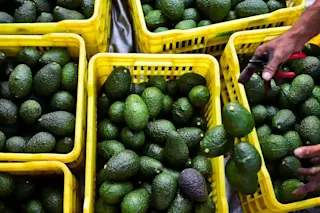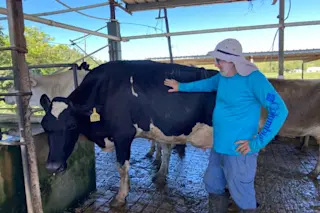The recent speech that Mark Lynas gave fleshing out his evolution on environmental issues--specifically his conversion on GMOs--continues to ricochet around the web. It's a compelling story. If you're just catching up, here's a quick recap from Andy Revkin:
The arc of Lynas’s fascinating career is in some ways neatly encapsulated by two acts at Oxford — throwing a cream pie in the face of Bjorn Lomborg, the skeptic of eco-calamity, at a book signing there in 2001, yelling “pies for lies” (see photo below), and now echoing more than a few of Lomborg’s assertions in his lecture at the Oxford Farming Conference on Thursday. In doing so, he has displayed an encouraging — and still rare — capacity to shed dogma in favor of data.
Not everyone has been so wowed, though. And I'm not referring to anti-GMO cranks like Vandana Shiva. Here's what paleoanthropologist John Hawks said:
Should we laud Lynas for his current change of heart? I'm glad to see that he started reading [scientific literature on genetically modified crops] instead of mindlessly parroting ignorant anti-science propaganda. But his current stance even if honest seems transparently opportunistic, as he has found books more profitable than his former advocacy. I would rather see him name names about his former anti-science associates who likewise worked on the basis of complete ignorance.
This strikes me as an unfair criticism. Besides, Lynas already had two books under his belt before changing his mind about nuclear power and GMOs (both of which he now champions). A more charitable and very smart take is given by Nature Conservancy President Mark Tercek, who writes:
Strip away the dogma, and we must confront the evidence. Are GMO crops harmful to human health? Can they increase yields and thus reduce pressure to clear more land for farming? Do the economics of developing new crops make sense, and can we develop sound regulations for their use? These are the questions we must address, often crop by crop, place by place. Lynas points to numerous examples, like golden rice, Bt brinjal (eggplant), or blight-resistant potato. This is where the debate must go; sweeping generalities will not help us.
Where the debate is headed (and how it should be conducted) is the subject of a new piece I have at Bloomberg (my first for this outlet). Basically, I'm grappling with what I think is the bigger picture on this issue--and it goes beyond science. I'd welcome hearing your thoughts.

[Cartoon/Clay Bennett]













